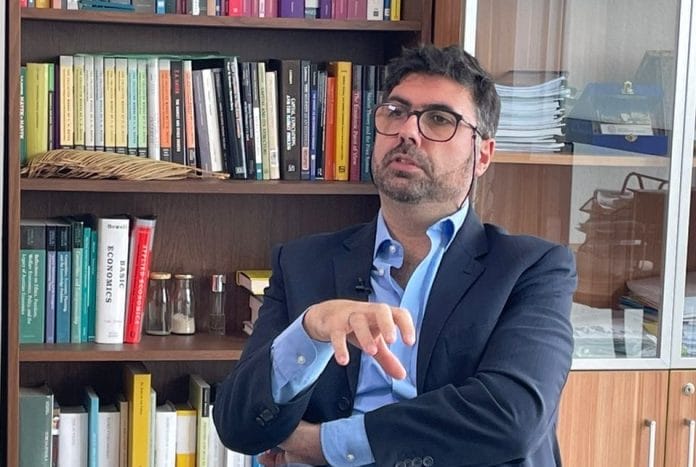Countries within the Asean community should remove any restrictions on the free use of any currency used within their territories, said Center for Market Education (CME) chief executive officer Dr Carmelo Ferlito.
“In a free currency system, people will refuse to use the national currency if it depreciates and therefore competition would push in the direction of value-stable currencies. This is the only way for a strong currency to emerge and to benefit citizens,” he said.
CME, he said, highlights several issues on monetary policy, in the publication of its first EduPaper Special Issue entitled “A Future World Monetary Order: A Debate on Lawrence H. White’s ‘Better Money: Gold, Fiat, or Bitcoin?’”.
The paper Edited by CME associate Emile Phaneuf III, who said the publication is “extremmely timely” as the world is living in a period of monetary turbulence.
“This is testified by the current weakness of the ringgit, dollarization announced by the newly-elected Argentinian President, the seizure of Russian and Afghan sovereign reserves, as well as threats from BRICS nations to move away from the US dollar for international trade.
“We are happy to contribute to the debate by suggesting that a sounder monetary order can arise only by pointing in the direction currency competition,” he said in a statement today (Nov 27).
The Edupaper is a call to action for governments around the world to embrace competition in currency.
“Allowing for various monetary projects to take place means both allowing unrestricted use of foreign currencies to be used within a nation’s own borders as well as allowing the private sector to experiment with various financial instruments.
“Such a policy framework would force the state to harness destructive inflation for its own national currency as well as reduce uncertainty in order to better serve market participants,” he said.
Further, in the essay which closes the issue, editor Emile Phaneuf III suggests the state never require merchants to accept any currency, neither the state’s own nor any other alternative currency or commodities.
“For example, while we consider it desirable that the citizens of El Salvador can now spend or receive payment in Bitcoin, we strongly recommend against any government in any country establishing that merchants must accept Bitcoin,” Emile said.
In the EduPaper series, Emile and CME also recommend reforming central banking by gradually removing the central bank’s monopoly on currency issuance and interest rate tampering.
Taking the idea of competition in currency seriously, CME’s special issue includes a piece written by Lawrence H. White (George Mason University), summarizing his new book Better Money: Gold, Fiat, or Bitcoin? (Cambridge University Press, 2023).
White, inspired by Nobel Laureate economist FA Hayek’s 1976 book The Denationalisation of Money, pioneered private money alternatives in the 1980s while his new book Better Money applies an economic analysis to and a comparison of a monetary gold standard, fiat standard, as well as a Bitcoin standard.
In addition to White’s summary of his own book, CME EduPaper includes commentary and analysis of of Better Money by Emile Phaneuf III, George Selgin, who also pioneered private money alternatives, Joakim Book, and Peter Šurda.









